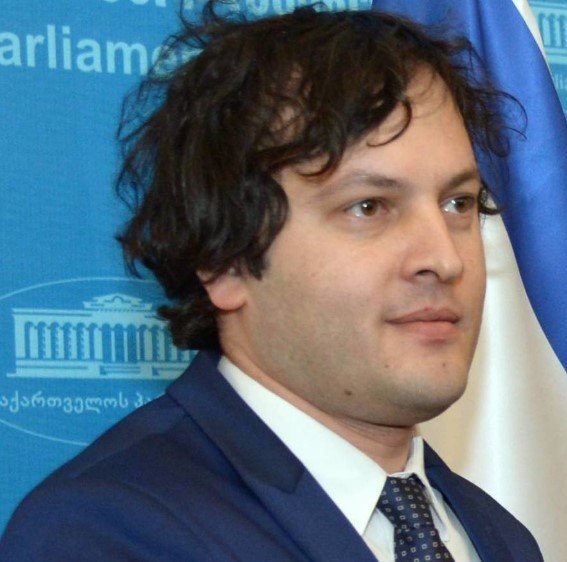Georgian Prime Minister Irakli Kobakhidze stated that his country will only follow European Union requirements if they make clear sense and have strong reasons. This comes right after Georgia sent a report to Brussels on August 31, 2025, about meeting visa free travel rules, sparking talks on what is next for EU ties.
Background on Georgia’s EU Journey
Georgia got candidate status for EU membership in December 2023, a big step after years of work toward closer ties with Europe. The move showed strong public support, with polls from 2025 revealing about 80 percent of Georgians back joining the EU.
This push started after the 2003 Rose Revolution, which aimed to build democracy and fight corruption. Over time, Georgia signed an association agreement with the EU in 2014, leading to visa free travel in 2017. Recent events, like the 2024 elections and protests, have tested these relations.
Tensions rose when the EU paused accession talks in late 2024 due to concerns over election fairness and reforms. Kobakhidze’s latest words highlight ongoing friction, as Georgia balances national goals with EU demands.
Experts say this reflects a wider trend in Eastern Europe, where countries like Ukraine and Moldova face similar hurdles in their EU paths.
Kobakhidze’s Key Statements
In a press briefing on September 2, 2025, Kobakhidze stressed that Georgia is open to EU demands but only if they are fair and explained well. He said Tbilisi sent a detailed report on meeting eight conditions tied to visa free status, set by the EU in July 2025.
The prime minister pointed out that he offered to meet EU leaders multiple times to talk about disputes, but got no reply. This lack of dialogue, he claims, shows problems in how the EU handles talks.
Kobakhidze also criticized what he sees as double standards from Brussels, comparing Georgia’s treatment to other candidate nations. He noted that while Georgia wants to join the EU soon, it will not give up its traditions or independence.

His comments follow a meeting with a regional energy executive, where he discussed economic ties that could support EU goals like energy security.
EU Conditions and Georgia’s Response
The EU laid out specific steps for Georgia to keep its visa free regime and move toward membership. These focus on human rights, rule of law, and democratic changes.
Here are some key EU conditions from the 2025 report:
- Strengthen judicial independence to reduce political influence.
- Improve protections for minority rights and free speech.
- Fight corruption through transparent government actions.
- Align foreign policy more closely with EU standards.
Georgia’s report claims progress in areas like anti corruption laws and economic reforms. But critics argue it falls short on issues like media freedom and election integrity.
To show the timeline of recent events, here is a table of major developments:
| Date | Event |
|---|---|
| December 2023 | EU grants Georgia candidate status. |
| July 2025 | EU sets eight conditions for visa free regime continuity. |
| August 31, 2025 | Georgia submits implementation report to European Commission. |
| September 2, 2025 | Kobakhidze declares only logical demands will be met. |
This table highlights how quickly tensions have built up in 2025.
Reactions from Stakeholders
EU officials have not yet given a full response to the report, but sources suggest they want more concrete actions on reforms. Some European leaders see Kobakhidze’s stance as a setback, while others call for more talks to avoid a breakdown.
In Georgia, opposition groups and protesters view this as resistance to needed changes. Mass protests since late 2024 have called for fair elections and stronger EU ties, with thousands taking to the streets in Tbilisi.
International observers, including from the Council of Europe, urge both sides to find common ground. They warn that failing to meet conditions could risk visa free travel, affecting millions of Georgians who travel to Europe for work and study.
Public opinion remains split, with some supporting Kobakhidze’s tough line to protect sovereignty, while others fear it could delay EU membership benefits like better trade and security.
Potential Impacts on Georgia’s Future
If Georgia sticks to this position, it might slow down EU integration, pushing full membership beyond 2030. Economic effects could include less aid and investment from Europe, which made up over 20 percent of Georgia’s foreign direct investment in 2024.
On the positive side, meeting logical demands could strengthen ties and bring in funds for infrastructure and green energy projects. Kobakhidze has hinted at joining the EU in the near future, but only on terms that respect Georgia’s values.
Analysts predict more negotiations in the coming months, especially with EU summits planned for late 2025. This situation echoes challenges faced by other candidates, like Turkey’s long stalled talks.
Broader Context in Regional Politics
Georgia’s stance fits into larger shifts in the South Caucasus, where countries juggle ties with the EU, Russia, and others. Recent events, such as energy deals with Azerbaijan and Turkey, show Georgia’s efforts to diversify partnerships.
The prime minister’s comments also come amid global talks on EU expansion, with leaders like Ursula von der Leyen pushing for faster integration of willing nations. Yet, internal EU debates on enlargement could influence how strictly conditions are applied.
For Georgia, balancing these demands with domestic politics will be key, especially with upcoming local elections in 2026 that could shape public support for EU goals.
What do you think about Georgia’s approach to EU conditions? Share your views in the comments and pass this article along to spark discussion.
